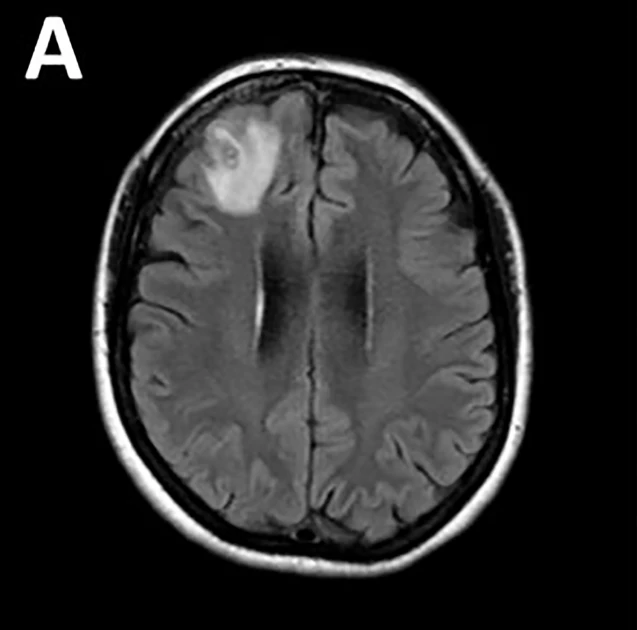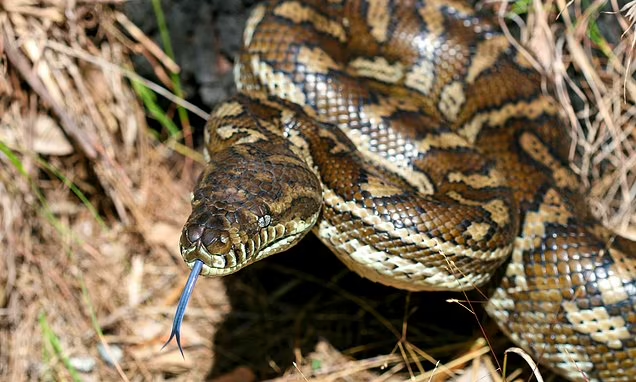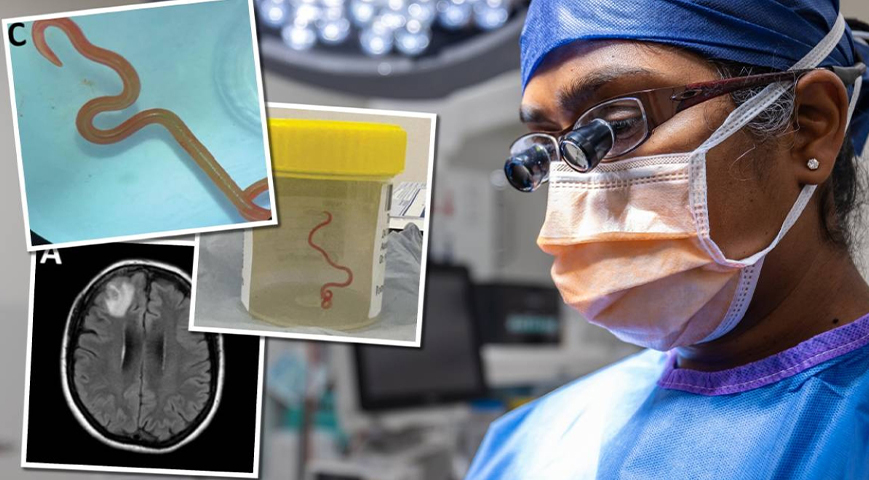According to Australian experts on Tuesday, a parasitic roundworm found in snakes was extracted "alive and wriggling" from a woman's brain in a stomach-churning medical first.
After the 64-year-old Australian woman began experiencing memory lapses, physicians did an MRI scan and discovered an "atypical lesion" near the front of her brain.
Ophidascaris Roberts was an eight-centimeter (three-inch) roundworm that experts reported was a frequent parasite in kangaroos and carpet pythons but not humans.
"This is the first-ever human case of Ophidascaris to be described in the world," infectious disease expert Sanjaya Senanayake stated.

Did you read this?
"To the best of our knowledge, this is also the first case to involve the brain of any mammalian species, human or otherwise."
According to research published in Emerging Infectious Diseases, the woman, who had been treated for but had not entirely recovered from pneumonia, was brought to a hospital in January 2021 after three weeks of abdominal pain and diarrhea, which developed into a dry cough and night sweats.
When her condition did not improve after three weeks, she was re-admitted to a hospital. She tried numerous therapies until brain scans revealed a lesion, and an open biopsy was conducted in June 2022.
"We noted a stringlike structure within the lesion, which we removed; it was a live and motile helminth," according to the findings.

DNA testing was then used to identify the parasite.
According to researchers, the woman became infected after scavenging for edible plants near her home, which were likely contaminated with parasite larvae shed in snake feces.
"It is never easy or desirable to be the world's first patient for anything," Senanayake remarked.
"I can't express how much we admire this woman for her patience and courage throughout this process."
According to Senanayake, Ophidascaris roundworms were known to infect animals in other parts of the world, and it was "likely that other cases will be recognized in the coming years."









